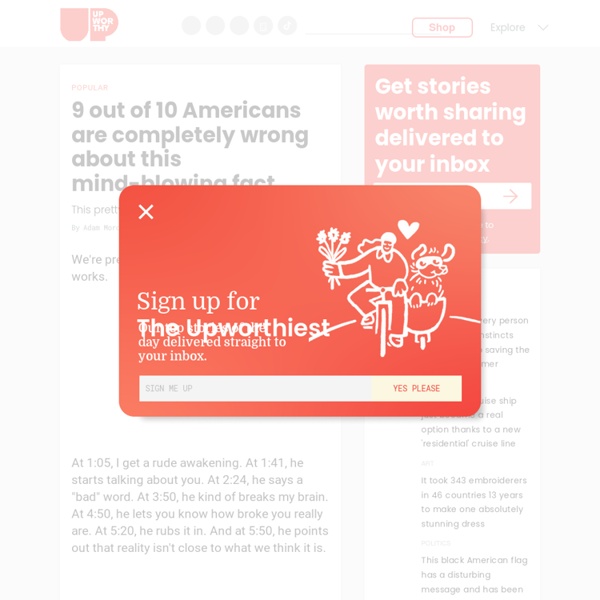9 Out Of 10 Americans Are Completely Wrong About This Mind-Blowing Fact

Growing Economic Inequality 'Endangers Our Future'
Nobel Prize-winning economist Joseph Stiglitz grew up in Gary, Ind. — a city that has weathered many economic storms over the past half-century. Stiglitz went on to study at Amherst College and MIT, where he received a Ph.D. in economics. He later served on and chaired President Clinton's Council of Economic Advisers and became the chief economist at the World Bank. "I saw discrimination lead to poverty, I saw episodic high levels of unemployment, I saw business cycles, and I saw all kinds of inequalities," he tells Fresh Air's Terry Gross. In his latest book, The Price of Inequality: How Today's Divided Society Endangers Our Future, Stiglitz argues that widely unequal societies don't function effectively or have stable economies and that even the rich will pay a steep price if economic inequalities continue to worsen. In the current system, top income earners who make their money through capital gains and stock dividends pay lower effective tax rates than the average person. On lobbying
How Successful People Make The Most Of Their Weekends
Related:
Related:



